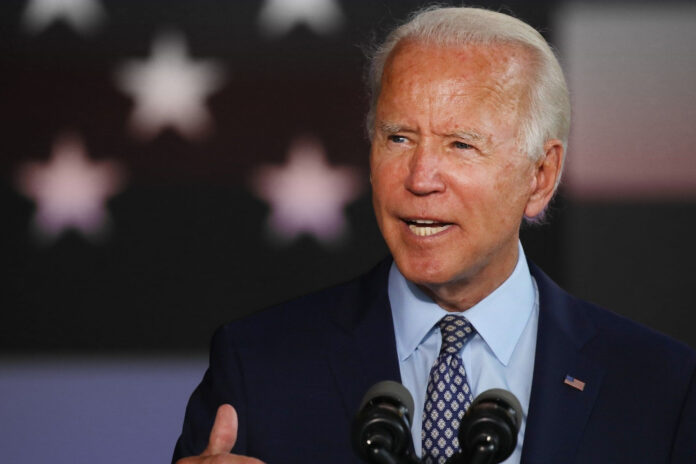WASHINGTON – President Joe Biden on Thursday announced he is taking executive action to pardon thousands of people federally convicted of cannabis possession. He also has tasked the Department of Health and Human Services (HHS) and the Department of Justice (DOJ) with reviewing the plant’s status under federal law.
According to a DOJ statement, the department “will expeditiously administer the President’s proclamation, which pardons individuals who engaged in simple possession of marijuana, restoring political, civil, and other rights to those convicted of that offense. In coming days, the Office of the Pardon Attorney will begin implementing a process to provide impacted individuals with certificates of pardon.”
Currently, no federal prisoners are serving time for simple possession alone, according to the White House, but the pardons will make life easier for those with prior convictions.
“There are thousands of people who have prior federal convictions for marijuana possession who may be denied employment, housing, or educational opportunities as a result,” Biden said in a statement. “My action will help relieve the collateral consequences arising from these convictions.”
On Twitter, the President added, “Sending people to jail for possessing marijuana has upended too many lives — for conduct that is legal in many states. That’s before you address the clear racial disparities around prosecution and conviction. Today, we begin to right these wrongs.”
The pardons do not apply to crimes involving other drugs, cannabis production or possession with intent to distribute, or noncitizens who were in the country illegally at the time of their conviction.
Saying cannabis’s status as a Schedule I drug “makes no sense,” Biden asked HHS Secretary Xavier Becerra and Attorney General Merrick Garland to “expeditiously” consider whether the plant’s classification under the Controlled Substances Act is too severe. He set no deadline for the review. Rescheduling or descheduling the plant could reduce or eliminate criminal penalties for possession and use. Currently, the Controlled Substances Act places cannabis in the same category as heroin and LSD — labeling cannabis more dangerous than cocaine, fentanyl, and methamphetamine.
About 6,500 individuals convicted between 1992 and 2021 are expected to receive federal pardons. “Thousands more” convicted in the District of Columbia also will be pardoned, according to the White House.
Biden also called on governors to follow suit at the state level, where the vast majority of possession convictions occur.
This is a developing story.











[…] of Congress on March 7, President Joe Biden made a concerted effort to promote his pardons and the rescheduling review request currently underway at the Drug Enforcement Administration. His team doubled down on the messaging […]
[…] of Health and Human Services recommended moving cannabis to Schedule III as part of a policy review requested by President Joe Biden in October 2022. While the DEA is not beholden to a timeline, it has been suggested Milgram’s […]
[…] A bevy of reform bills has passed through the legislature in recent years. In late 2022, President Joe Biden requested the DOJ (of which the DEA is a branch) and the Department of Health and Human Services (HHS) […]
[…] President Joe Biden in October 2022 asked the Department of Health and Human Services to reconsider cannabis’s Schedule I status under the Controlled Substances Act, the agency recommended the Drug Enforcement Administration […]
[…] level, cannabis remains a Schedule I drug under the federal Controlled Substances Act (CSA). After President Joe Biden’s October 2022 request that the Department of Health and Human Services and the Department of Justice conduct a review of […]
[…] proclamation was the second signed by the president in little more than a year. In October 2022, Biden issued pardons to those federally convicted of simple possession and prohibited all future federal prosecutions […]
[…] from Schedule I to a less restrictive Schedule III under the Controlled Substances Act, following President Biden’s request last year for the Department of Justice (DOJ) and HHS to “expeditiously” reconsider the […]